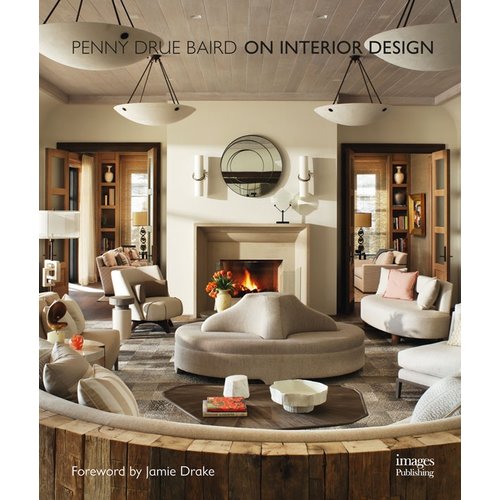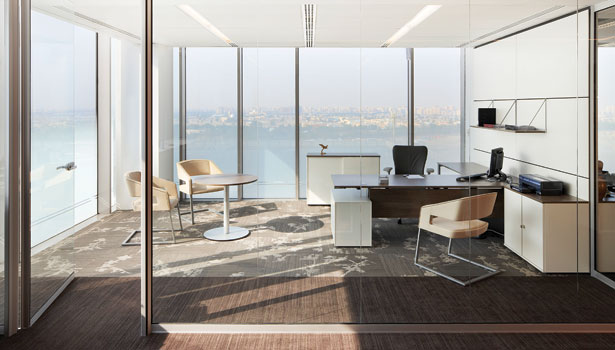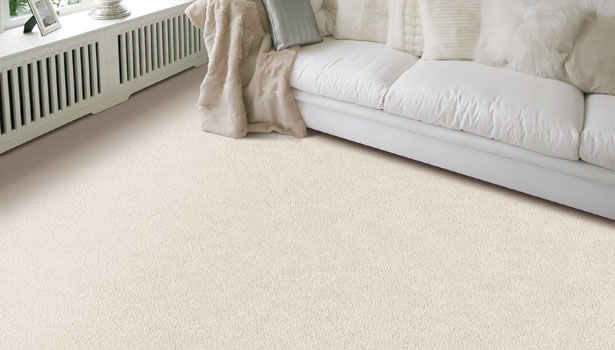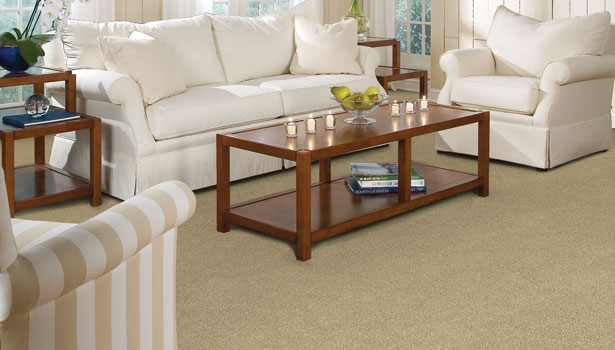Carpet Trends Focus on Softness, Modular








2013 has brought about some amazing trends in both commercial and residential carpets. These trends are far more intrinsic than simple—or sophisticated—aesthetics. New fiber systems, improved performance characteristics and alternative formats to broadloom are just a few of the meaningful ones. Soft-handed fibers and the entrée of residential carpet tile systems are two of the more important trends on the horizon and merit some special attention.
When it comes to advent of the “soft” carpet fiber is has become a mega trend in residential carpet. After all the technological improvements mills have achieved in residential product development, they had to search for a new direction that would appeal to consumers. Soft-handed carpets proved to be the next big thing.
Shaw Industries’ Anso Caress nylon has set the bar high for soft fiber systems. This is an extremely fine-denier nylon that brings silky softness to the floor. But, Shaw’s Caress Collection is built for performance as well. It is enhanced with Shaw’s patented R2X stain and soil resistance system, which provides total fiber coverage and protection from top to bottom of each yarn. This prevents spills from soaking into the carpet—and backing. Not only does that make the carpet easier to clean, there is no wick-back re-appearance of stains.
Tightly twisted yarn construction gives Caress products the performance and durability consumers are seeking in their carpets.
Mohawk Industries has a breakthrough fiber system that focuses on softness. Its SmartStrand triexta fiber system made with DuPont Sorona polymer contains 37% renewable resources derived from corn. Stain and soil protection are built right into the fiber and will not wear or wash off. No topical chemicals are necessary for stain protection, which not only provides a safer, chemical-free flooring surface, but maintains the inherent softness of the fiber.
The original SmartStrand products were soft to begin with, but Mohawk raised the bar when it introduced SmartStrand Silk, and like the original, Silk has become an instant hit for Mohawk and its dealers, with many noting the softness sells itself with consumers.
Beaulieu America has an exceptional offering in the world of soft-handed carpets. The Bliss collection features its SoftSense fiber.
The secret to the extreme softness is in the fiber extrusion process. Polyester fibers of the finest denier are extruded and then tufted into super-dense pile constructions to produce an exceptionally soft feel underfoot.
The Bliss HealthyTouch collection features SoftSense technology, combined with Beaulieu’s MagicFresh (deodorizer), Silver Release (anti-microbial treatment) and 3M Scotchguard Protector. This is the total package of luxury and great durability.
Masland, Dixie Home, Fabrica—all under The Dixie Group unbrella—have each introduced products made with Stainmaster TruSoft nylon fiber from Invista. The predecessors to TruSoft were Stainmaster Tactesse and Luxurell, which most retailers already know have had great success.
Given that track record, Dixie was confident that not only could it introduce the latest soft fiber system available to its divisions, but position it as a performance product as well. That has proven to be true. The differentiation to be made with TruSoft versus other soft fiber systems is that it has four to five deniers per filament, which happens to be the thinnest carpet fiber on the market.
Shaw has also come out with its own line of TruSoft carpets, giving its retailers a double-edged attack to attract consumers seeking soft, but durable fibers.
Also, like Beaulieu has come out with a super soft polyester carpet, a number of other companies have recently introduced their own versions, such as Cashmere from Engineered Floors/Dream Weavers, a solution dyed polyester that promises the softness of, well, cashmere, with strong performance and styling attributes.
Carpet Tile Craze
The commercial sector has long identified with the benefits of carpet tile versus broadloom installations to the point where it now makes up between 55% and 60% of all contract carpet sales.
The A&D community verified the top reasons why its writes carpet tile into a specification:
• Easier to work with in high-rise or furnished open-office installations.
• Flexibility in design layout: Brick (ashler), monolithic, quarter-turned.
• Ease of replacement of damaged or soiled areas.
• Availability of special backings to provide anti-microbial properties or impermeable moisture barriers.
• Accessibility to electrical wiring beneath raised-access floors.
• Ease of storing replacement tiles for future use.
• Easier to collect and return for recycling at end of life.
That’s a pretty impressive list and almost every point stated can cross over to satisfy residential needs as well. In fact, according to Vintage Design, a Southern-California based new home design center, there is now a significant upsurge in requests for commercial-grade carpeting for residential use. Tailored, contemporary good looks coupled with durability are the hallmarks of commercial carpet tile, and consumers are very interested—especially those with home offices.
Interface’s expertise in carpet tile was the seed that germinated into its FLOR modular carpet system. 20-inch tiles can be a D-I-Y residential project, either in area rug sizes or room size. FLOR started out marketing through catalogs to residential customers and has grown both online and in brick-and-mortar locations.
The versatility of designing with FLOR tiles is magnetic to consumers. They can design their own area rug or wall-to-wall carpet. The mix-and-match capabilities are plentiful: Bright colors mixed with neutrals in block designs, coordinating mixes of patterns, eclectic mixes of textures. All these choices lend themselves to unique interpretations.
Shaw is also a major player in the modular business, though it has stuck mostly to the commercial side. It has recognized the growing popularity of this product and its potential among consumers but right now the closest it comes to residential is through its Main Street business which offers a strong selection of products.
Mohawk carpet tile has represented significant growth opportunities for the company. With a flurry of new products rolled out last year, carpet tile represented over 50% of Mohawk’s new product introductions. With vibrant colors in high demand, especially for accents, Mohawk added over 50 colors to its carpet tile palettes. The company has featured Sorona SmartStrand in modular carpet format. Sorona has performance characteristics that are similar to nylon, but its environmental footprint offers a 30% reduction in greenhouse gases, and like its broadloom counterpart, 37% of the fiber’s content is derived from rapidly renewable sources. The carpet tiles are fully recyclable at the end of their life cycle.
Milliken developed the Legato Carpet System to give the look and feel of wall-to-wall carpet with D-I-Y ease of carpet tiles. Legato panels fit together easily and feature the mill’s TractionBack high-friction coating to keep the modular tiles in place. Made of 100% Wear-On premium nylon, the ease of installation and, if necessary, replacement is very attractive to homeowners. The tile’s size is nearly 19¾-inches.
Mannington Mills may be noted for its presence in the commercial market, but as mentioned earlier, commercial carpet tile and broadloom are migrating to the residential sector. 24-inch tiles are definitely not a D-I-Y project for homeowners; these do require professional installation. But designers seem to be infatuated with commercial styling—with durability being a major correlating benefit—and more and more are selecting commercial styles for the home.
Beyond just the wave of soft products and the growth of carpet tile, there are several aesthetic markers of which to make note. Tone-on-tone patterns are becoming hugely popular. They are easy to live with and have a somewhat timeless quality to them.
Highly textured carpets are a continuing area of design innovation and exploration. Mills are looking to out-do each other when it comes to pure drama in floor covering, and textures are running the gamut from cable yarns on steroids—super-thick—to soft, silky shaggy styles. If you are searching for residential patterned carpets, introductions favor everything from pastel Victorian designs to crazy colored animal prints.
Any way you look at it, the consumer is the true benefactor in this fast-paced race by manufacturers to come up with newer, better and more dramatic carpet styles than ever before.
Looking for a reprint of this article?
From high-res PDFs to custom plaques, order your copy today!









